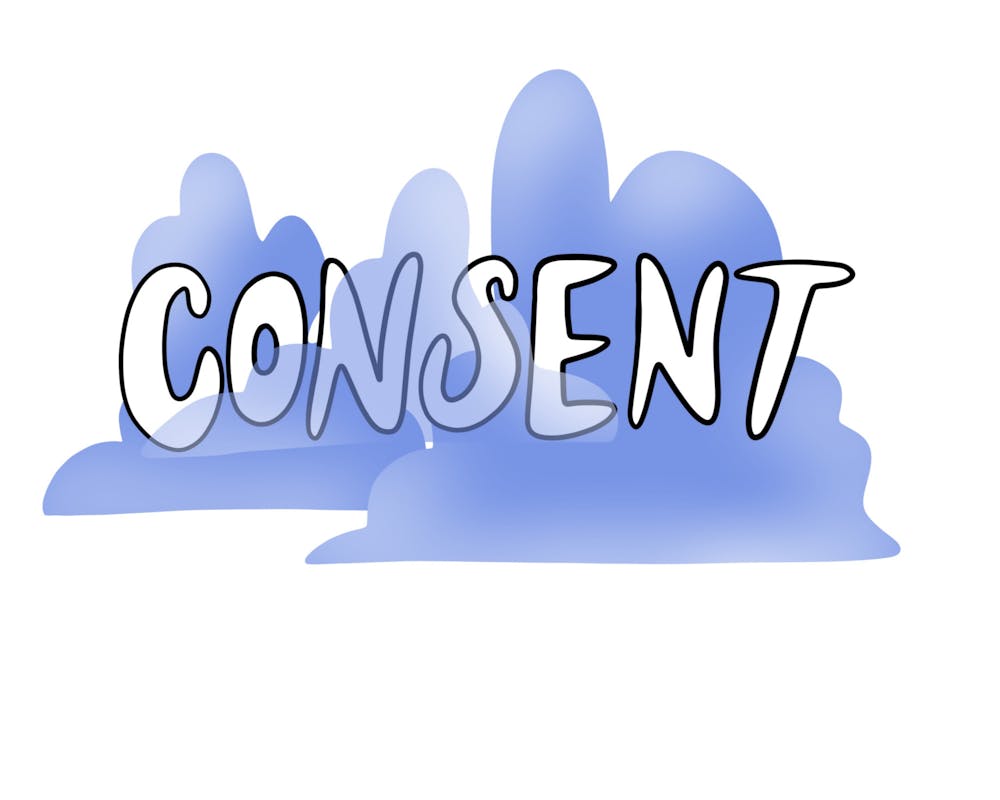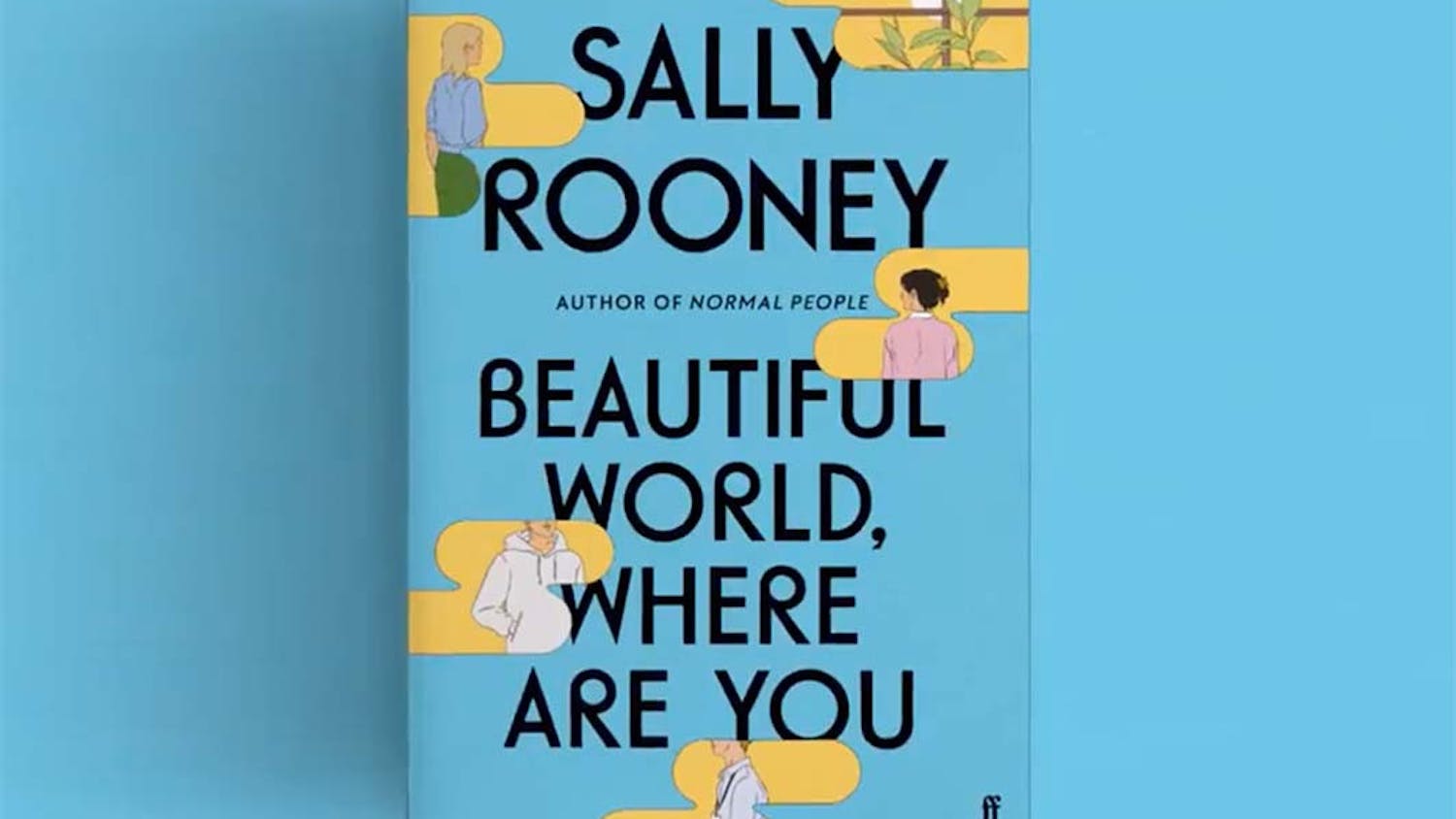This is how I used to start the story: as soon as I entered his room, I wanted to leave. This is how I should start the story: I was drunk; he was drunk; it’s not his fault. It still makes me want to cry. It’s not his fault.
One night during my first year at Middlebury, I went up to the room of a guy I knew had been vaguely interested in me for some time, but whom I only considered a friend. That night was the first and only time I initiated flirting with him. He was nice and tall, and I was just drunk enough to convince myself I was attracted to him.
I kissed him or he kissed me, the decision to go up to his room as thoughtless and natural as centripetal force. There must have been some excitement in the journey, but all of my drunken giddiness dissipated with the slam of his door. We had never been alone together in an enclosed space, and his bed seemed to swallow the room.
If you asked most people on a college campus, especially this one, if consent can be given when one person is drunk and the other is sober, most people would probably say no — though there remains a gap between rhetoric and practice. The question of consent under the influence becomes more complicated when both parties are drinking — does it become an even playing field? According to the mandatory SafeColleges consent training, the answer is no — the training states that consent cannot be given when either party is under the influence. But lived reality says otherwise. On college campuses, where alcohol is a integral social and sexual lubricant, the premise of abstaining from sex when both parties are drunk for the sake of consent proves idealistic.
I now realize that SafeColleges might have had a point.
In the light of day, I found myself questioning my decision. Why didn’t I leave? Initially, I was upset over the act of hooking up with him. But as time progressed, I became more disturbed by my inability to make any indication that I wanted to stop it from happening — not because of any external pressure, but because I felt a sense of duty to keep going.
Why didn’t I leave? Friends asked me the same thing. The only explanation I could offer was a thought, which despite the alcohol and months gone by, remains clear: I needed to have sex with him so that I could leave.
I became almost certain I would not have hooked up with him, let alone gone to his room, if I had been sober. My actions seemed, and still seem, alien to me. I recognized the insecurities and impulsivity motivating my decision, but not the girl leaping between momentary desire and action. I thought I was swept up in the night’s momentum, but in retrospect, the momentum was primarily alcohol.
As soon as his lips touched mine, I knew it was a mistake. Yet, I continued to sexually engage until he told me he was feeling sick. This came as a welcome excuse to finally leave. By agreeing to go to his room, I felt like I’d made an implicit promise to have sex with him. Voicing my desire to leave seemed unbearably awkward. I worried that if I reneged on the promise in any way, I’d be committing a kind of fraud. To be clear, my feelings of obligation were internally motivated — he was not at all coercive or aware of my discomfort.
Since that spring night, I have been groped non-consensually and followed by men several times, but my encounter with him — or, to be more precise, my response — haunts me the most. I’ve mostly resigned myself to my inherently limited ability to stop men from enacting violence upon me.
Most women are aware of the statistics: one in five women will be assaulted on a college campus. The real numbers are likely higher because so many incidents go unreported and so many go unrecognized as sexual assault. Considering these statistics, avoiding sexual assualt seems more like a matter of luck than anything else.
However, it seems like, at the very least, I should be able to exercise my ability to refrain from engaging in situations that make me uncomfortable at best and that are dangerous at worst. If I felt like I couldn’t leave in a situation like this, what would’ve happened if someone was being violent?
Conversations about consent often produce a false and heteronormative binary: either he’s a rapist or she regrets having bad sex. This binary, as binaries tend to be, is extremely limiting and harmful. It fails to account for how we are all instruments of culture.
For months, I perceived my response as a personal failure of character. I have only recently begun to view the situation with more nuance. Thinking back on that night, it has been sobering to realize just how much consideration of male desire lay at the heart of my actions.
External coercion is often centered in discussions of sexual assualt, but the actions of the other person are only part of the story. Women are also fighting against the cultural forces which still teach them to prioritize other people’s needs over their own.
In the past few years, I’ve witnessed a broad push for affirmative consent and increased consquences for sexual predators. Such progress, though long overdue, is often hailed (or feared) as a cultural reset. The reality, as many of us know, is far more complicated.
As mentioned earlier, sexual assault is still largely framed in heteronormative terms as violence perpetrated against cisgender women by cisgender men — even though transgender people are over four times more likely than cisgender people to experience violent victimization, including rape and sexual assault.
We need to start framing these conversations with more nuance, acknowledging the gray areas that are intrinsic to consent, especially on college campuses.
We can change the legal definitions of acceptable sexual behavior, but how do we change the internal expectations that govern interpersonal dynamics? In addition to the way our legal system often fails survivors, there remains a limit to how much the law can change culture. Formal structures like the courts and Title IX are designed to arbitrate situations in which there is a perpetrator and victim. How do we rectify situations in which no one is at fault, but something still went wrong?
I don’t have the answers to any of these questions, but I like to think beginning to wrestle with them might be the only place to start.

Sarah Miller '24 (she/her) is an Editor at Large.
She previously served as Opinions Editor and Staff Writer. Miller is an English major on the Creative Writing track. She hails from Philadelphia and spent the spring studying English at Trinity College Dublin. She has interned for The New England Review and hosts a WRMC radio show where you can still listen to her many opinions.




